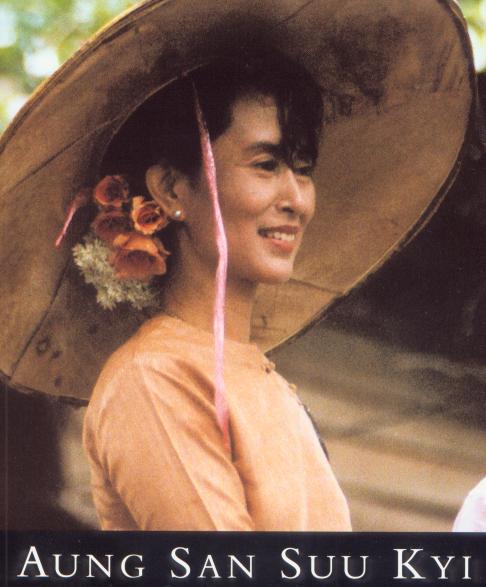
19 Jun Who inspires us: Aung San Suu Kyi and Burmese democracy
 “In societies where men are truly confident of their own worth, women are not merely tolerated but valued.” – Aung San Suu Kyi, 1995
“In societies where men are truly confident of their own worth, women are not merely tolerated but valued.” – Aung San Suu Kyi, 1995
Like Mahatma Gandhi in India and Nelson Mandela in South Africa, Aung San Suu Kyi has become an international symbol of democracy and non-violence resistance. Being placed under house arrest for 15 out of the past 21 years, Ms Suu Kyi has finally sworn to the oath and she is now the leader of the opposition in the Burmese parliament after she led her party, National League for Democracy, to a landslide victory in the 2012 by-election. It is seen as a historical moment as the Cambodia Foreign Minister points out “So that people in Myanmar can enjoy better opportunities to realize their aspirations for peace, national reconciliation, democracy and national development”.
At Wedu we believe that not only Ms Suu Kyi’s victory is significant to Myanmar’s political development, it is indeed also a sign of women’s empowerment within the country. Traditionally, gender inequalities have been prevalent in the Burmese society and it is still an existing problem today. In 2011, the Human Development Index for Myanmar was 0.483 and under the Gender Inequality Index, the country’s score is 0.492 (96 out of 146 countries). This is particularly true in the political arena as according to the UN Women’s 2012 Inter-Parliamentary Union report, Myanmar’s female participation in parliament ranked 134 out of 143 countries. No women have been selected to hold any of the 50 ministerial positions. Under such circumstances, Ms Suu Kyi’s victory might actually bring changes to the status-quo since her party, the NLD, obviously promotes female leaders. In fact, it put up 12 women for parliamentary seats in the recent by-elections and it is a good gesture in showing the increasingly opportunities for women to participate in the public sphere and national affairs.
Although Ms Suu Kyi did not address the issue of women in her victory speech, she has undoubtedly served as a role-model to millions of girls in Myanmar and even all over the world for her determination and continuous efforts in fighting for her beliefs. This year in June during the World Economic Forum on East Asia, Ms Suu Kyi gave a speech by mentioning some ways to tackle the cultural problem of women`s empowerment in ASEAN regions, such as to encourage women to assume leadership roles in political parties and to provide incentives to families that keep their girls in school. It is hoped that her success will be the beginning of the age of reform, which would hopefully create a favorable environment for promoting greater gender equality – a goal that Wedu strives to accomplish in Myanmar, a country that we believe has enormous potential and thus want to focus on more and more.

Stef Lau is currently a MSc Social Policy and Development student at LSE and the communication intern at Wedu Fund. She has previously undertaken internships in both the public and private sector in China and Ghana and she has also had study abroad experiences in National University of Singapore (Singapore) and UCLA (the United States). She is particularly interested in promoting gender equality as well as the welfare of migrants


ashtan
Posted at 09:38h, 24 Marchi like it the only one that said this than you. ashtan knapp